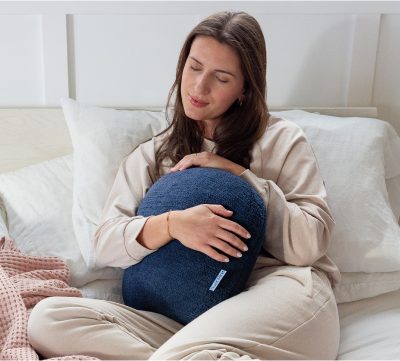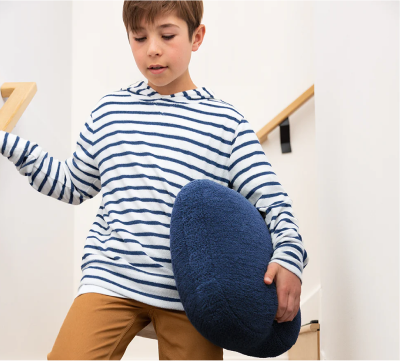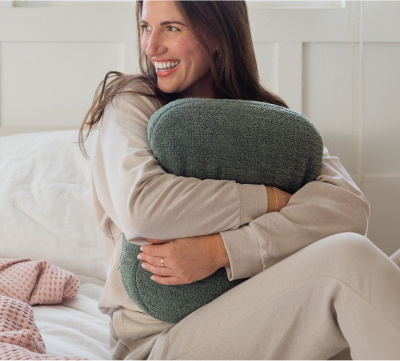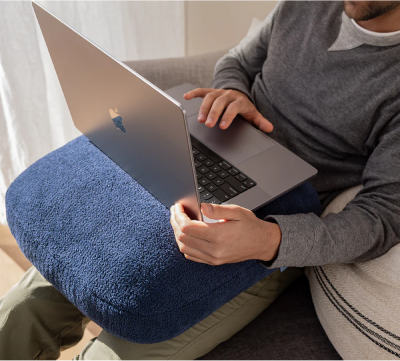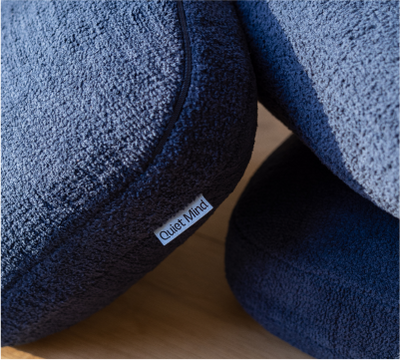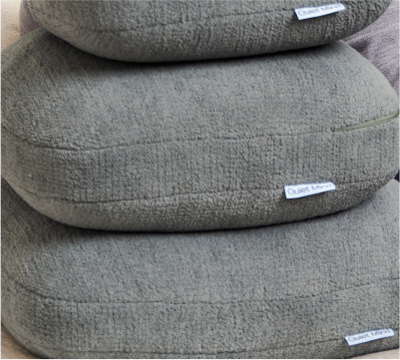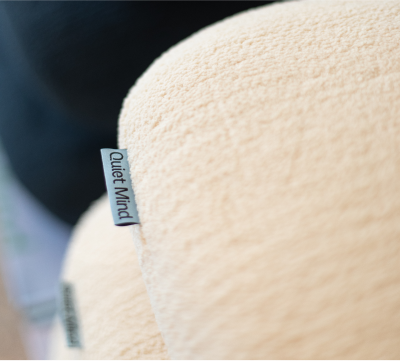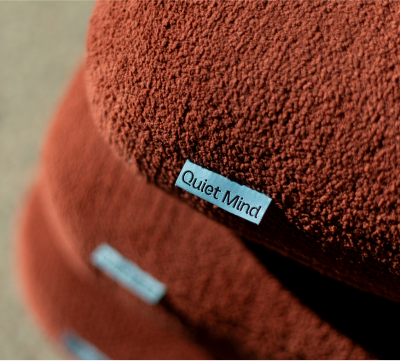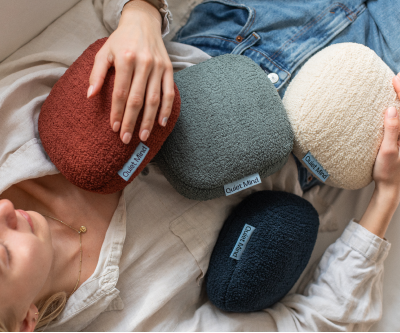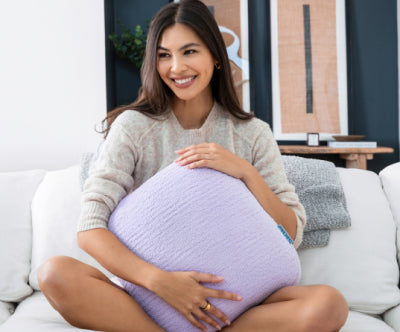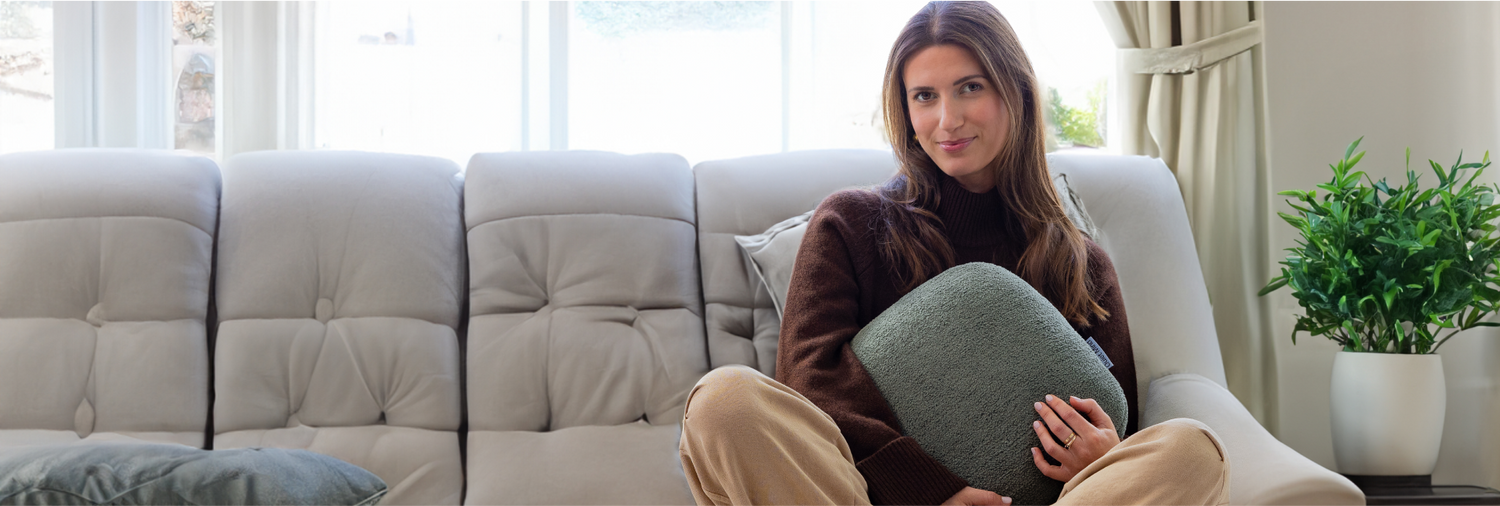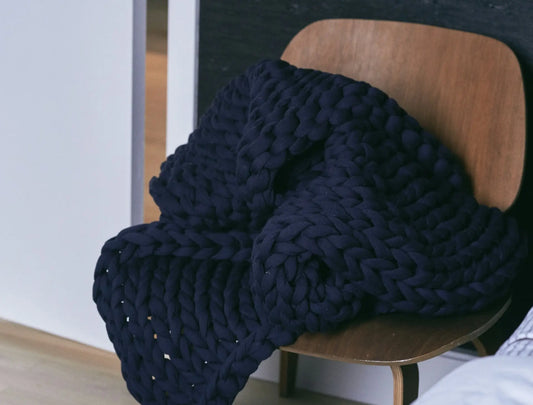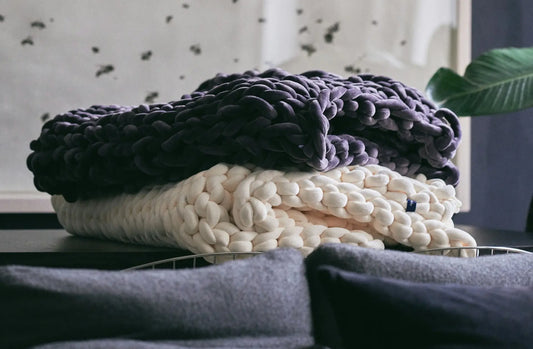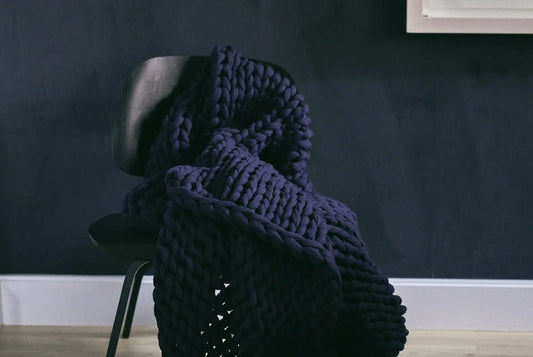You lie in bed, physically exhausted but mentally wired. You’ve tried everything: herbal tea, stretching, avoiding screens, but you still can’t fall asleep.
You’re not alone. Trouble sleeping is incredibly common, and the search for the best sleep aid can feel overwhelming. Should you take a sleeping pill, try a natural remedy, or change your sleep habits altogether?
This guide explores the healthiest sleep aids, both natural and over-the-counter, that support sleep without harsh side effects or dependency. Whether you’re managing short-term disruptions or a chronic sleep problem, the key is choosing something that’s gentle, sustainable, and truly supports your body’s rhythms.
Defining “Healthiest” in the Context of Sleep Aids
The healthiest sleep aid isn’t just the one that works fastest. It’s the one that supports your body gently and consistently:
- Promotes sleep naturally
- Supports your long-term sleep habits
- Is safe, non-addictive, and tailored to your needs
- Minimizes risks like daytime sleepiness or disrupted sleep cycles
For many, this means avoiding strong prescription sleeping pills in favor of gentler, non-habit-forming solutions that still improve your sleep quality.
Natural vs. Prescription: What Matters Most
Prescription Sleep Medications: Short-Term Help, Long-Term Caution
Prescription sleep medication, such as zolpidem or eszopiclone, can be effective for treating short-term insomnia. However, these medications may:
- Alter the natural type of sleep your body experiences.
- Lead to tolerance, dependency, or rebound insomnia.
- Some sleep aids can cause side effects such as confusion, grogginess, and impaired alertness, especially in older adults.
They’re often recommended only for acute cases and under close medical supervision.
Over-the-Counter Sleep Aids: Widely Used, Often Misunderstood
Many turn to over-the-counter sleep aids, such as those containing diphenhydramine or doxylamine (both are types of antihistamines), for quick relief.
These are common in products like Nytol, ZzzQuil, or Unisom, where the active ingredient is marketed to help you sleep.
However, frequent use can lead to:
- Daytime grogginess.
- Cognitive impairment in older adults.
- Reduced effectiveness over time.
Even though these medications may seem mild, they are not recommended for long-term use, and they do not treat the root causes of insomnia.
Safety, Effectiveness, and Long-Term Use
A healthy sleep aid doesn’t just help you fall asleep at night, it supports a sustainable sleep routine over time.
- Natural aids: Gentle, generally safe for most people, especially when used short-term or cyclically.
- Prescription aids: May help acute insomnia but are often recommended for short-duration use due to side effects.
Whenever possible, sleep aids should complement core sleep hygiene practices and behavioral strategies to support better sleep, rather than replace them.
Best Natural Sleep Aids Backed by Science
Several natural sleep aids have been studied for their ability to improve sleep onset, depth, and quality, without harsh side effects.
Melatonin: Regulating the Circadian Rhythm
Melatonin is a hormone that your brain naturally produces at night. It helps signal that it's time to sleep. Supplemental melatonin supplements can:
- Rebalance your circadian rhythm.
- Help you fall asleep faster.
- Support sleep for shift workers, jet lag, or those with delayed sleep phase disorder.
Typical dose: 0.5 to 5 mg, taken 30–60 minutes before bed.
Best Forms: Tablets, capsules, Gummies, or Liquid drops etc.
Start with the lowest effective dose. More isn’t always better. Melatonin is especially useful if your sleep schedule is off or you need help resetting your natural sleep and wake cycle to support sleep at night naturally.
Magnesium: Calming the Body & Nervous System
Magnesium is a mineral involved in over 300 bodily functions. It helps in sleep by supporting muscle relaxation, reducing stress responses, and easing insomnia symptoms.
Typical Dose: 200–400 mg in the evening
Best forms: Magnesium glycinate or citrate
Valerian Root and Other Calming Herbs
Valerian is a traditional herbal sleep aid that mildly increases GABA, a neurotransmitter that calms the brain. It’s often used to:
- Ease trouble sleeping due to stress or anxiety.
- Improve type of sleep without next-day drowsiness.
Typical Dose: 300–600 mg 30 minutes to 2 hours before bedtime.
Best Forms: Standardized capsules or tablets, Extracts/concentrates.
Other herbal options include:
|
Herb |
Common Dose |
Use |
|
Chamomile |
1–2 cups of tea or 300 mg |
Soothes digestion, calms the mind |
|
Passionflower |
250–500 mg or tea |
Reduces mild anxiety, promotes relaxation |
These may be used alone or in blends. Check for interactions if you take medications.
Emerging Natural Options: Ashwagandha, L‑Theanine, CBD, Saffron
A new wave of botanical compounds is gaining scientific recognition for their impact on stress and sleep.
Ashwagandha: For Cortisol & Sleep Quality
Ashwagandha is an adaptogen used in Ayurvedic medicine. It may:
- Lower evening cortisol (stress hormone)
- Help those with chronic insomnia
- Improve both sleep onset and sleep depth
It’s not a sedative but works by calming the nervous system over time.
L‑Theanine: Calm Focus, Not Drowsiness
L=Theanine is found naturally in green tea, and helps:
- Induce alpha brain waves (linked to calm alertness)
- Reduce stress without sedation
- Pair well with melatonin or magnesium for a more relaxed transition to sleep
CBD: Controversial but Promising
CBD may:
- Reduce anxiety around sleep
- Relieve mild pain or nighttime agitation
However, product quality varies, and research is still developing. If you’re considering CBD to help you fall asleep or stay asleep, consult your doctor, especially if you take other medications.
Non‑Supplement Sleep Aids: Lifestyle and Behavioral Tools
Not every effective sleep aid comes in a bottle. In fact, many sleep experts agree that behavioral tools and sleep habits form the foundation of lasting sleep improvement.
The healthiest sleep solutions often involve changing how you sleep, not just what you take.
Cognitive Behavioral Therapy for Insomnia (CBT-I)
If you struggle with chronic insomnia or feel like you’ve tried everything, CBT-I may be the most effective option.
This structured, evidence-based therapy helps reframe the thought patterns and behaviors that unknowingly keep you awake.
It’s especially useful if you:
- Dread bedtime or feel anxious about sleep.
- Can’t fall asleep or wake up too early.
- Feel exhausted but wired.
CBT-I has been endorsed as a first-line treatment to treat insomnia, even before medication.
You can access CBT-I through trained therapists, sleep clinics, or reputable app-based programs that guide you through core techniques like sleep restriction, stimulus control, and thought reframing.
Sleep Hygiene: Creating the Right Conditions for Sleep
Even the best sleep aid won’t work well in the wrong environment. Your surroundings, behaviors, and sleep habits signal to your body whether it’s time to be alert or time to rest.
Practicing good sleep hygiene includes:
- Going to bed and waking up at the same time every day (even on weekends).
- Avoiding caffeine and alcohol in the hours before bedtime.
- Keeping your room dark, cool, and quiet.
- Creating a calming nighttime ritual.
These habits help reset your circadian rhythm sleep cycle and improve your ability to get enough quality sleep.
Small additions like a weighted blanket, relaxing music, or herbal tea may also help promote sleep as part of your nightly rhythm.
Relaxation Techniques: Teaching the Body to Feel Safe at Night
Sometimes, it’s not the sleep environment or supplement that’s missing. It’s a sense of internal safety. The nervous system must feel calm before sleep can begin.
Gentle tools like:
- Progressive muscle relaxation
- Deep breathing exercises
- Visualization or guided meditation
- Ambient sounds or music
These things can help quiet your mind and reduce anxiety around sleep, especially when you find it hard to fall back asleep after waking.
These techniques not only help in the moment, but when practiced regularly, they rewire the body's stress response. This leads to better sleep overall.
Which Sleep Aid Is Best for You? A Personalized Approach
There is no one-size-fits-all solution. The healthiest sleep aid for you depends on what’s keeping you awake and how much or how little sleep you can survive on before it begins to affect your well-being.
Matching Aid to Cause: Stress, Lifestyle, or Medical Issue
- If stress is dominant: Ashwagandha, L-theanine, and breathwork may help.
- If your rhythm is off: Melatonin or light therapy can support realignment.
- If sleep is fragmented: Magnesium or herbal aids may ease transitions.
Sleep is a conversation between your mind, body, and environment. Listen to what it’s trying to say.
When to Combine Aids or Seek Professional Advice
In many cases, a combination of tools such as a melatonin supplement paired with improved sleep hygiene offers the best results.
But be cautious.
You should consult your doctor or a sleep expert if:
- You’re already taking other medicine or managing a health condition.
- You want to combine multiple sleep aids or supplements.
- You’ve experienced less sleep, fatigue, or trouble sleeping for more than 4–6 weeks.
A sleep center can run tests for underlying sleep disorders, offer personalized coaching, or adjust treatment plans using sleep medicine tailored to your needs.
Safety and Side Effect Considerations
Even natural sleep aids can carry risks if not matched to the person. Here’s how to stay safe while exploring your options.
Interactions with Medications and Medical Conditions
Some aids like melatonin, magnesium, or herbal formulas may interact with medications:
- Antidepressants
- Blood thinners or antihypertensives
- Sleep medications or sedatives
Always disclose your full supplement list to your doctor, especially if you are also taking sleeping pills or prescription sleep medication.
Dosage, Duration, and Monitoring
To use supplements wisely:
- Start with the lowest effective dose
- Use short-term: 2–4 weeks while establishing better sleep habits
- Monitor how you feel tired, alert, or groggy during the day
Remember, the goal isn’t to rely on a sleep aid forever. It’s to improve your sleep while you build a lasting, healthy routine.
What Sleep Experts Recommend
Experts agree: the healthiest approach to sleep blends behavioral change with natural support that’s been studied.
|
Sleep Aid |
Expert Insight |
Primary Benefit |
|
Melatonin |
Best for resetting circadian rhythm |
Improves timing and sleep onset |
|
Magnesium |
Widely recommended for relaxation |
Calms nerves, relieves muscle tension |
|
Valerian Root |
Backed for mild anxiety-related sleep issues |
Promotes deeper, sustained sleep |
Sleep experts also consistently recommend CBT-I as a foundational tool. It creates long-term transformation rather than short-term fixes.
Final Thoughts
True rest doesn’t begin with a pill. It begins with understanding your body’s rhythms, your mind’s stressors, and the patterns that shape how you sleep. There are many options, from melatonin supplements to gentle behavioral shifts. The healthiest sleep aid is the one that supports your sleep naturally, consistently, and without long-term tradeoffs.
Whether it’s a calming herbal tea, a small dose of magnesium, or a nightly wind-down ritual, the goal isn’t sedation. It’s restoration. You don’t need to chase the deepest sleep on night one. Start by creating space for rest, making small changes, and allowing your body to relearn what ease feels like. It may take time, sometimes days or even weeks, but sustainable sleep is always worth the investment.
About Quiet Mind
At Quiet Mind, we believe calm begins in the body. That’s why our weighted pillow is crafted to offer gentle, grounding pressure, supporting your nervous system with softness, not force.
Whether you’re winding down before bed, moving through anxious moments, or simply needing a sensory anchor in the middle of a busy day, the Quiet Mind weighted pillow is there to hold you, quietly and consistently.
Because comfort doesn’t need to be complicated. Sometimes, it’s just the steady weight of presence, reminding you that rest is allowed.
Frequently Asked Questions
What is the difference between natural and prescription sleep aids?
Natural sleep aids are often plant- or mineral-based and available over-the-counter. Prescription aids are synthetic, typically stronger, and require medical supervision.
Can I use sleep aids long-term?
Sleep aids are most effective short-term. Long-term use may lead to dependency or reduced effectiveness. Always consult a doctor for ongoing sleep concerns.
What are some lifestyle changes that can help improve sleep?
Keep a consistent sleep schedule, avoid caffeine late in the day, dim lights in the evening, and practice calming pre-bed rituals.
How do I know which sleep aid is right for me?
Reflect on your root sleep challenges—whether mental, physical, or environmental. A sleep diary or consultation with a specialist can help guide the choice.
Are there any potential side effects of using sleep aids?
Yes. Some may cause grogginess, interact with medications, or affect underlying health conditions. Start small and monitor closely.
How can I improve my sleep hygiene?
Prioritize routine, a sleep-friendly space, and calming evening rituals. Avoid screens and stimulants, and create a wind-down practice that signals safety and ease.
